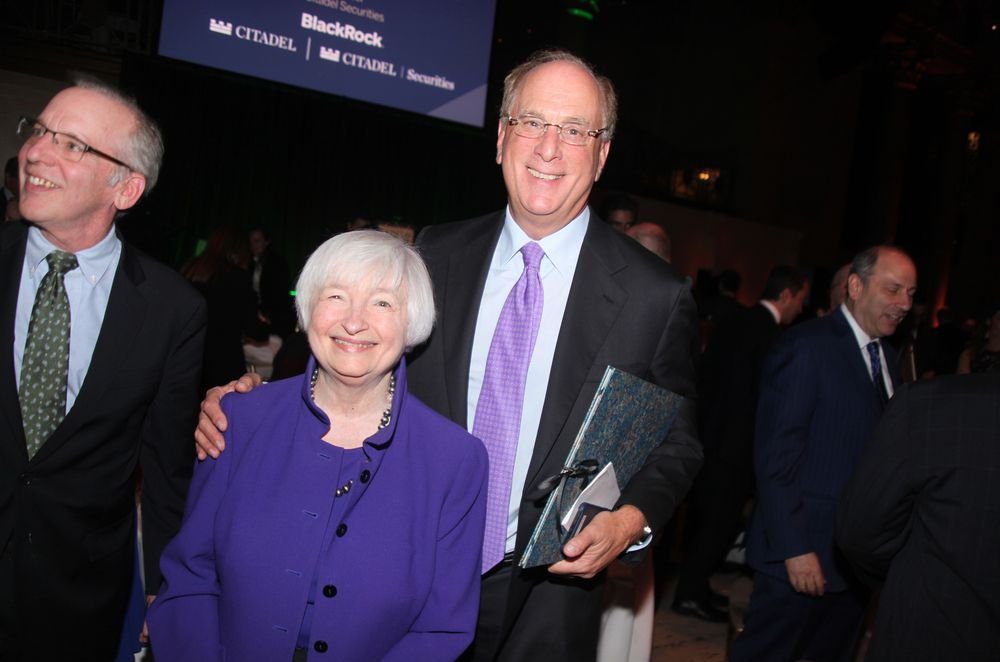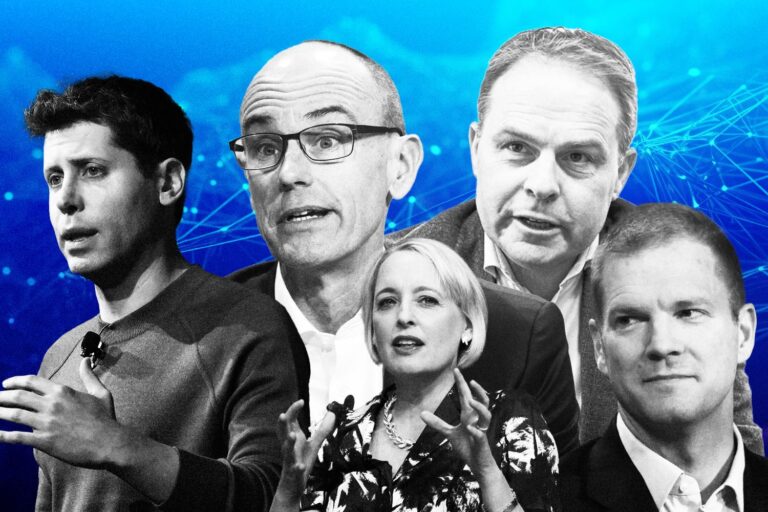BlackRock’s Culture and What Does It Means to Be Emotional In the Financial Sector?
For long investment management firms has appeared to be one of the motifs in which global leader like BlackRock is lesser known than its peers. Known as an unseen influencer of all policies and directives, what the firm does, influences even the largest influencers.
It started when the firm’s founders had come together with prior experience in the mortgage-backed securities market – which work like buying bonds that generates from loans passing around by banks. Whose expertise in managing risk was significant in turning Blackrock into what it is today. How the firm defines itself? It invests to help more and more people experience financial well-being.
Blackrock’s on Its Early Day
They were all Wall Streeters, bond experts, investors, and traders. And the initial idea was that the buy-side half of a trade needed help to understand these products. So, the band re-create themselves as asset managers, transform expertise into norms and help run the cash flow.
Since then, the company began to grow, first in fixed income and next in the less familiar world of equities, where both separate accounts and mutual funds do the magic. Not so unfamiliar as of now, but back then the firm’s growth model was described as the online game Argar, in which players control their character that grows bigger by eating other smaller players.
The firm’s influence was such that when the financial crisis of 2007-2008 hit, the US government contracted BlackRock with cleaning up the mess from the crisis and managing the toxic assets that were owned by firms like the Lehman Brothers, Bear Stearns, Freddie Mac. As a matter of fact, even amidst the current financial crisis caused due to the Coronavirus outbreak, the government is once again looking for BlackRock’s expertise, according to Bloomberg Quint
How It Owns the World?
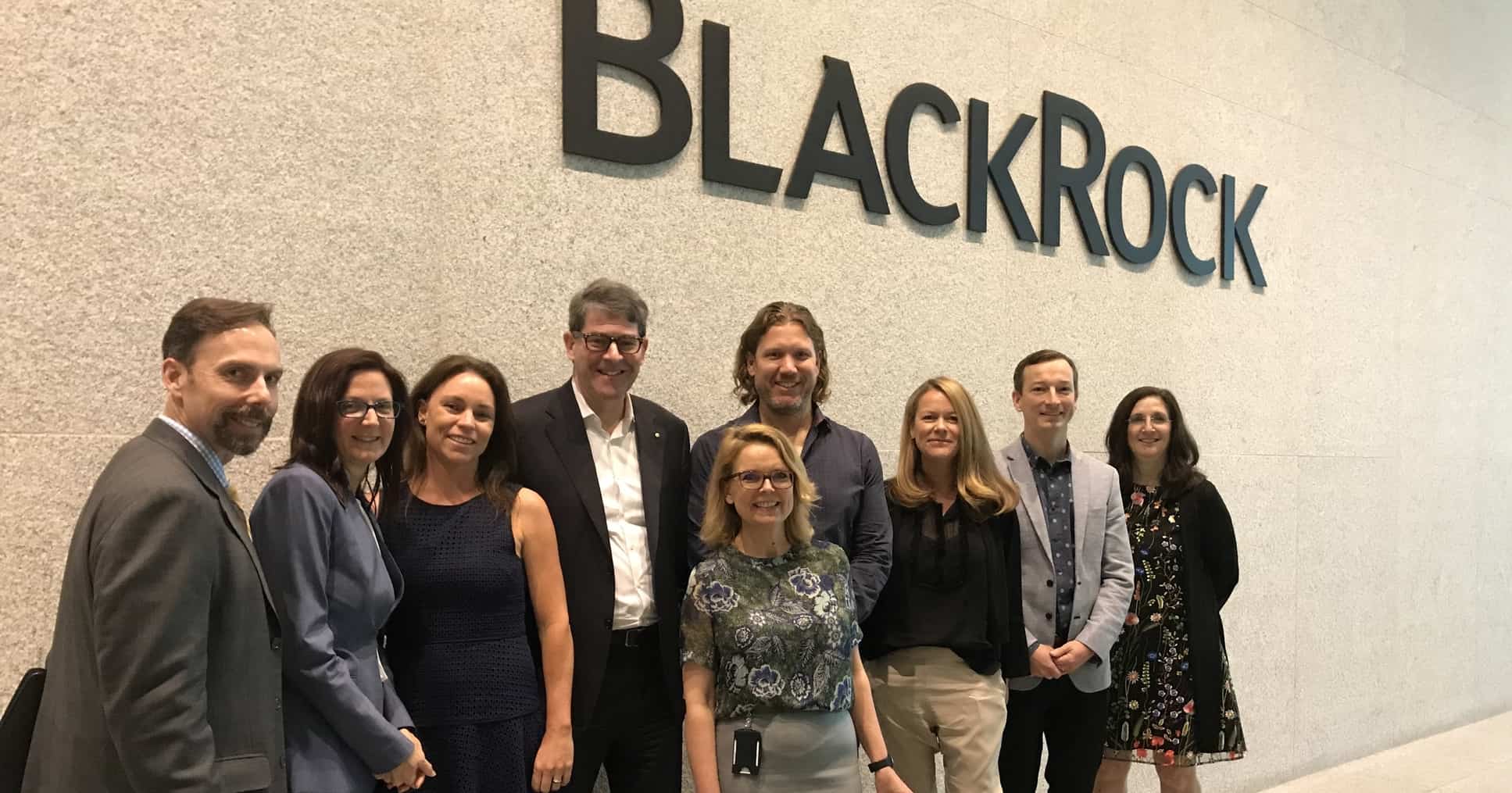
In general, the firm offers a range of funds of portfolios investing in channels like equities, money market instruments, or fixed income.
Clients come to the company for access to mutual funds, investments that focused on plans related to retirement income and college savings, and exchange traded funds. But the clients here are different, the firm’s arena aim at institutional ones. Like how the investment banks that the general public used to turn to for financial services, those banks used BlackRock in turn for the very same services.
There are many revenues model, but most of the firm’s revenue are derives from investment advisory, administration fees or security lending. In fiscal year 2020, this category alone calls for $12.6 billion or 78 percent of total revenue, according to its report.
Till Now What the Company Is Aiming at?
A recent Deloitte survey report that millennial workers tremendously response to the fact that the primary purpose of the businesses should be “improving society” than “generating profit.” How the forefront is changing perspectives has also moved BlackRock to change, and put the spotlight on Environmental, Social, and Governance (ESG) issues.
Ended 2020 with nearly $8.7 trillion in assets – the firm said it was focused mainly on ESG investing in the previous year. It devoted to exiting assets that present high sustainability risks, launched new products, and enable clients to invest in companies with the best ESG ratings.
Earlier 2021, double down on last year strategies, in its CEO’s annual letter BlackRock said it will ask peer companies to publish plans for how their business models will be compatible with a “net zero economy” and it will publish the proportion of its assets that are aligned to net zero greenhouse gas emissions. “The ESG-linked credit facility enhances BlackRock’s commitment and accountability to achieving certain sustainability goals,” the company said.
It wants to be managing sustainable assets worth $1 trillion by 2030, up from $200 billion currently.
This commitment could deliver a major boost to sustainability-linked loans, which have risen in popularity in recent years as companies face mounting pressure from shareholders to embrace business practices that are better for society and the environment.
However according to CNN, the firm’s progress in amplifying investments into companies with high ESG ratings could further affects its borrowing costs.
It will need to meet at least two of its three objectives and cannot “meaningfully underperform” on the third in order for a pricing benefit to kick in, according to a spokesperson.
Uncover Truth of Sustainable Investing – It Does Not Help?
In an interview with Climate & Capital Media, goes against Larry Fink, a former BlackRock colleague Tariq Fancy says ESG benchmark has create a societal placebo where you think that these investments help making progress even though they are not.
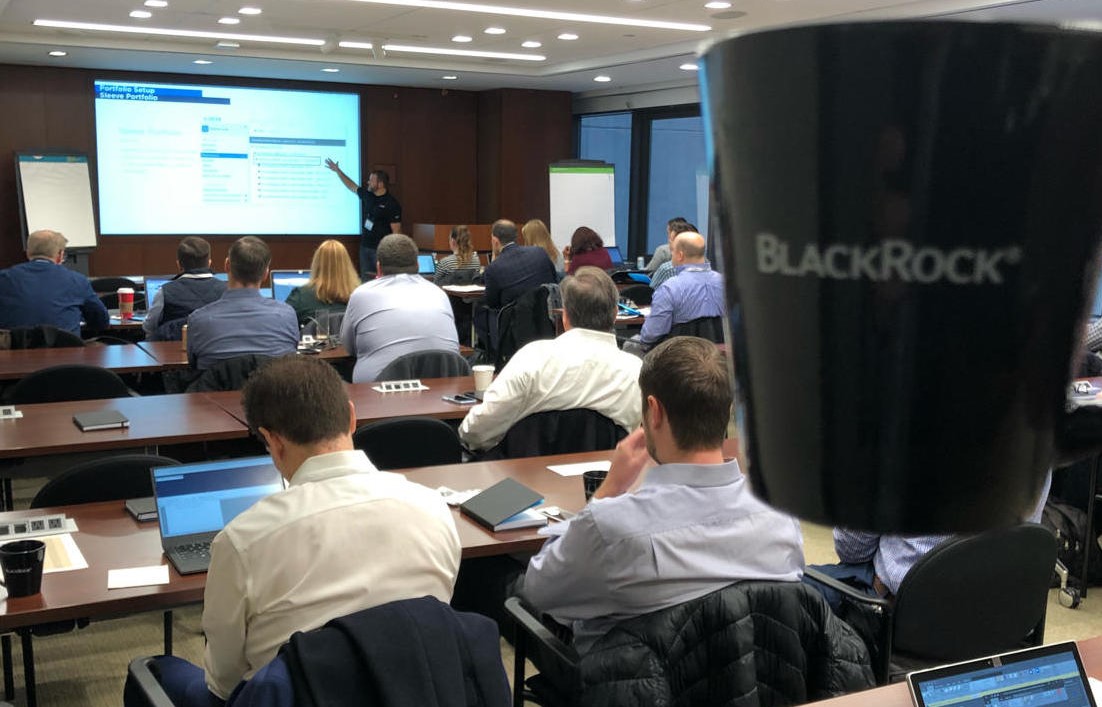
In 2017, Fancy himself was recruited by BlackRock to be its first Chief Investment Officer for Sustainable Investing as the Wall Street’s answer to the public’s growing demands for action upon climate change and other social issues.
However, the time at this giant corporate only made him to push back and argue systematic government oversight is the only way to scalable climate solutions. And the major problem with sustainable investing is that “even if they are marketed correctly, they actually have no demonstrable impact,” said Fancy.
There was, of course, a story before reaching this conclusion. While leading the charge to incorporate ESG considerations into all $8.7 trillion of investment activities at BlackRock, he started to realize that there is not a lot of value at all in the data they have. It did not – and does not work in most investment strategies, since many are short-term and lack of concern about long-term issues. In brief, this data was not at all useful to invest in, or at least not nearly as much as Fink was implying. ESG was mainly for marketing, Fancy explained, these investment plans are just ‘distractions’ that intended to dupe the public.
When did he first become skeptical about the Environment, Social and Governance (ESG) plans BlackRock has been pushing?
Fancy recalls when he was with the firm, he had to figure out an investment mechanism for how to create social change because Fink was writing that in letters, so the question is “How does this actually lowered emissions?”
So, it’s his job to author a long paper to explain how ESG and sustainable investing will, over the long-term, actually start to transform capitalism into better outcomes. Ironically, at the time Fancy finished he realized that is a paper of vague argument on how the free market will slowly correct itself, which is – to him – the most irresponsible answer ever.
“I could clearly see that the markets would not “correct” themselves without government action. At some point, we have to accept that burning fossil fuels is dangerous to us unless we do something.”
There are always many sides of a story, and as we are entering the unknown of the future, we can never tell exactly what result a movement would cause to the entire ecosystem. But keep in mind, for whatever outcome, at least it would teach us what to do right next time.
Move on to how BlackRock has managed to sweep out everything on its way. Leadership and culture are the two pills that matter the most when it comes to corporate’s success, especially the size that this firm aspired to be.
Insights into World-class Leadership and Culture
Larry Fink – one of the co-founders, chairman and CEO of BlackRock – is responsible for a mammoth $7trillion in assets under management, making him one of the most influential people in global finance. Everybody learns from somebody, and great leaders need great mentors, so, who does Fink learn from?
Who Does Larry Fink Learn from?
On an interview with ‘the most powerful man on Wall Street’ by Bloomberg Markets, Fink reveals he had never mimicked anyone’s leadership model but there are two biggest figures that inspire him and influence how he manages the firm.
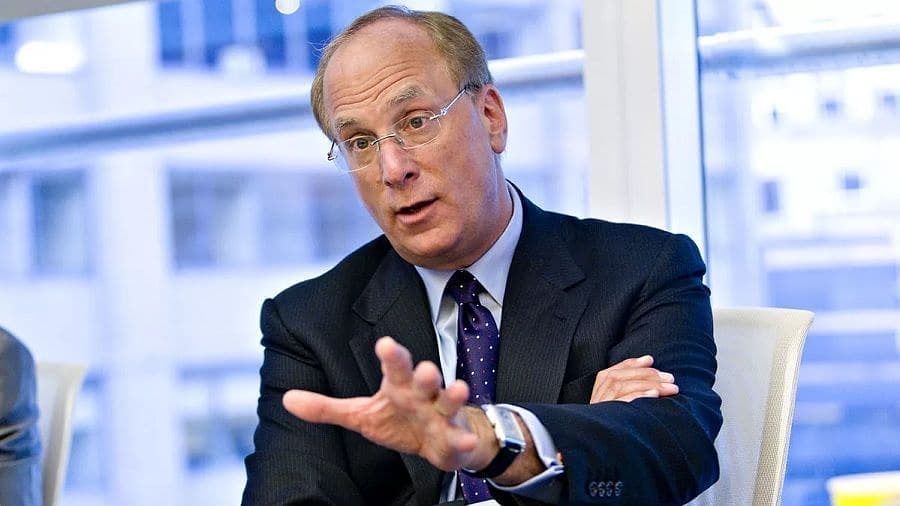
One is Lee Kuan Yew, the late founder of modern Singapore – who took this mosquito-infested port that the English and then Malays ravaged, and look how impressive Singapore is today. The other is Phil Jackson, one of the most triumphant NBA coaches in history – who is now the New York Knick’s president.
The key to success in basketball is the organization, not one individual. In the case of Jackson, he won an unprecedented 11 championship titles, either coaching at Chicago Bull or Lakers, the coach still able to bring out the best from both. That’s what called leadership, Fink explains.
Able to adapt to new teams and still excel doing so because those leaders are at peace with themselves and trust the intuition they’ve developed. Leading an organization, it’s crucial for you to be aware of how success comes from inspiring your people to change themselves, and at the same time understand that it is impossible to fundamentally change someone. So, the magic you have to do here is look for a role that would allow individual to thrive and there contribute most to the team. Keep in mind, change somebody only means advance and upgrade their potentials!
A Personal Approach to Leadership – an Important Message for My Team
On the latest interview with McKinsey, Fink shares how he always has this speech to welcome the company’s incoming class of young hires about its always pay off to spend an hour a day studying the world and the market – as he has been doing for more than 36 years running this company. “I’m still a student. I’m still learning today as much as I was learning 36 years ago when I started this business.”
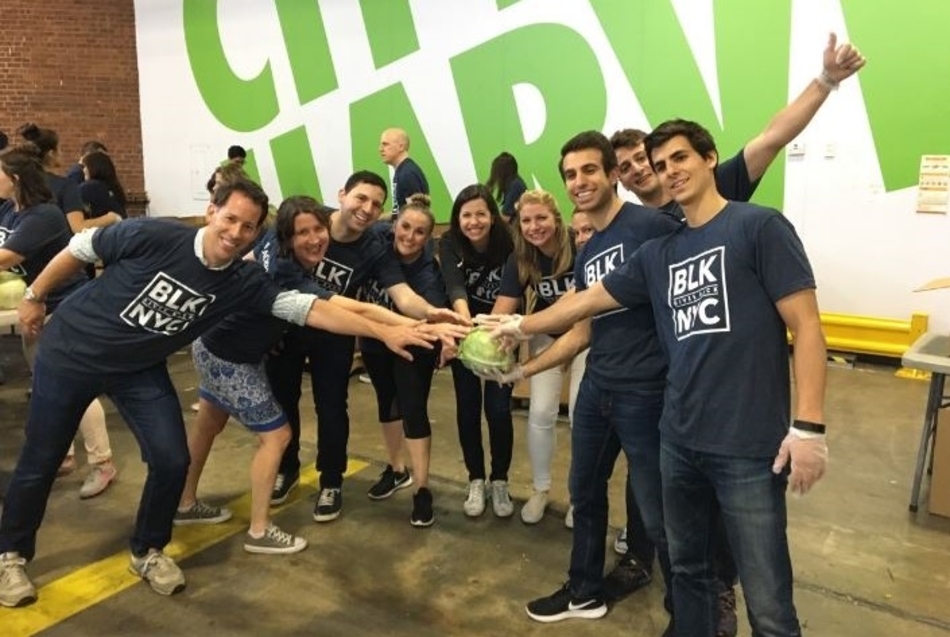
The company’s job globally is about investing. It’s all about transfer of information to their clients, therefore, it is crucial to be current, to be up to speed and responsive. Whether it is HR, legal, operation or technology If your people do not understand the world and the markets, they would not be connected to the firm. “So, it is imperative that all of us worldwide take the time to be that student,” Fink addressed.
Which has happened to be the most important lesson, according to Fink, he has learned by watching other firms. You may forget that your job has to evolve and change all the time, and that what worked in the past may not work in the future. If you are not learning, you are not wake up every day as a student, you are probably leaving behind.
In this investing domain, you have to be innovative to your clients by studying the big picture of political and economic forces worldwide, how that translates into an investment strategy, and how that translate into a risk-management strategy.
So many companies have failed, because they were very good with one product for a moment and forget to monitor the evolution of that product or the evolution of that information and thus did not adapt fast enough and became irrelevant.
That is the one message either a leader or a follower you are. Fink insists people to stick to and keep learning every day.
On BlackRock’s 2012 letter, the CEO once wrote its passion that is the differentiator between good performance and great performance. So, what is passion, especially when we are talking about corporate ladder, and this hard-boiled financial world?
Fink describes ‘passion’, in this case, is an individual characteristic which can be manifested in so many different ways. And it’s essential for leaders to call this up upon their teams. You have to bring people in to be more engaged by force the situation that make them ask questions.
That’s how passion is invoked – it appears when people try to look for answers. But how each individual exhibit passion can be quite different, but most important, passion is about looking up for answers that align with your promises – and make sure you are living up to your expectations on your way looking there.
“I meet a lot of young people, and they tell me what they want to do. These people who come out of the universities with really incredible backgrounds, highly educated, great schools, great pedigrees, talk about their passions. They talk about their dreams. And I try to tell them, “You know, there are many more dreams out there than there are success stories.”
Between dream and success stories, there is a wide crooked space that might cause misery to the dreamers. And the reason is that success is about consistency and living up to the dream by being comprehensive in how you execute. But sometimes dreamers do not grasp that notion!
Build Connections and What It Means to Be Emotional in the Financial Sector?
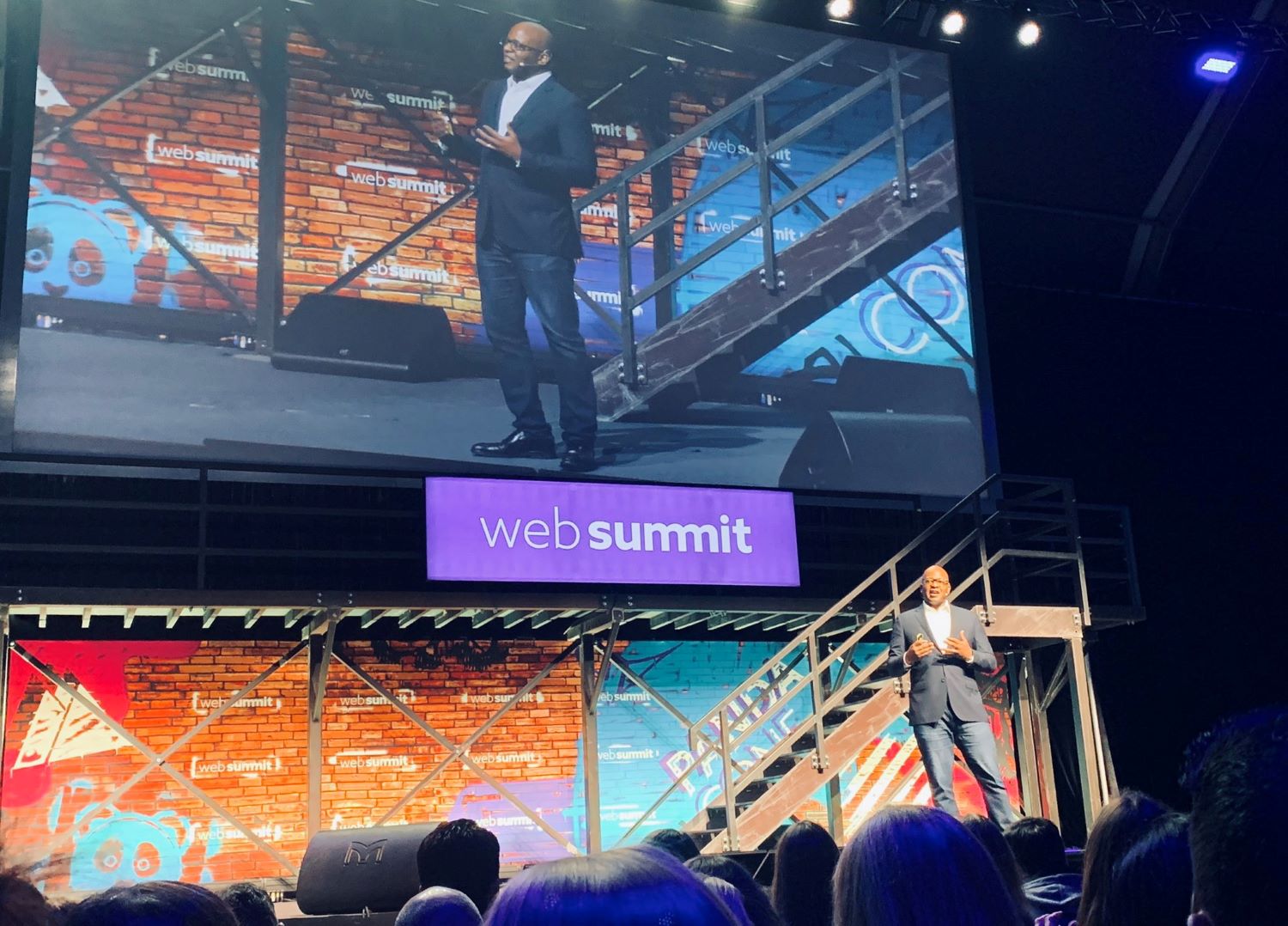
Particularly in years of social unrest where economic outlook is unpredictable, the connection one’s personal purpose to the professional and brand purpose is so important – it determines if that organization could endure. Frank Cooper – Managing Director and Global Chief Marketing Officer at BlackRock shares vision as a business leader.
The professional world is at a peak where a tremendous amount of change is happening at once. In point of view of a leader from the most influential firm, what are these extraordinary times means to Cooper?
This is not the first the US or the world faces off such chaos scenario, Cooper addressed. However, this always is a great opportunity for you and your organization to step into this transitional space and again find your purpose, your ultimate mission, call it whatever you want to call it. But here it’s the “why.”
“Why do you exist beyond profits? That is what it is ultimately about,” the executive explains. Of course, there will be purpose-washer like the green-washer but soon the truth will come out, who is authentic and who is not. Eventually, the best talent will be attracted to those firms who are authentic about their purpose, best talents will soon see it and help translate into best performance. That is what hard times are for, to purify the market and left only the authentic ones.
Emotion and Trust
Trust in the financial sector has always been the core value that all firms are trying to pivot. And the only way there is to show how authentic your brand is, but how to that how to tell clients that you are not saying one thing, but doing another?
“…if you want to become a powerful brand with purpose and longevity, you have to rise above the merely rational, you have to operate in the realm of emotion”
– Frank Cooper, Senior Managing Director and Global Chief Marketing Officer at BlackRock
Obviously, that while representing values you would build trust that connects people to your brand. If not, it’s just a product with name, or lucky a good product with name. But if present as a powerful brand with purpose and longevity, you have to rise above the rationales and drive in the realm of emotion. Because that is how people are motivated to believe in you, to connect with you and be loyal to your brand.
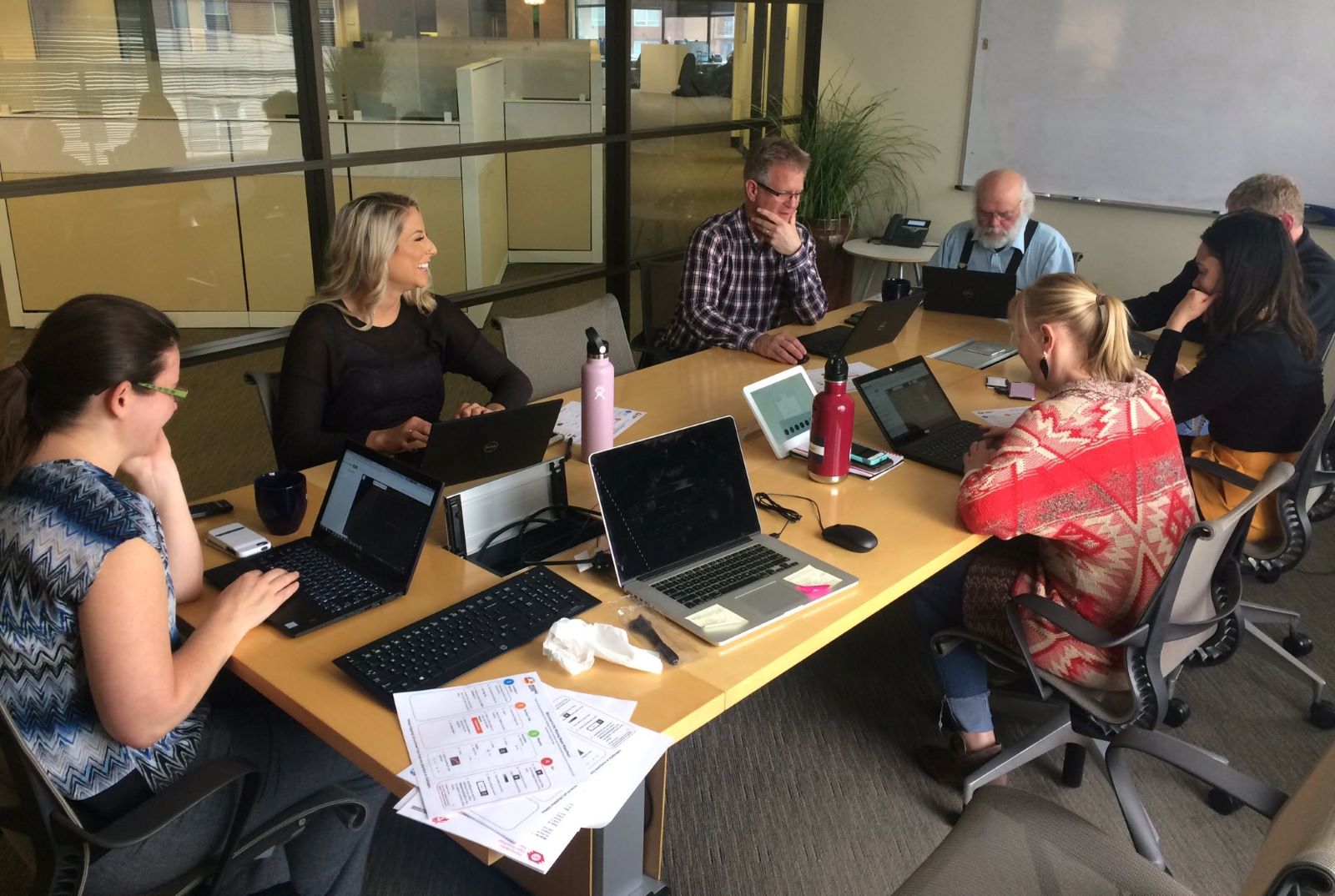
So, what does it mean to be emotional in this industry of financial and statists which is built completely on rationality? How to balance these two keys?
There is the language of rationality on the surface of every industry. And Cooper claims, he does not want to minimize the rational, it’s very important, particularly in financial services. But when it comes to clients or investors, they are struggling a lot with their relationship with money, with how to put emergency savings in place. And those decisions are emotional ones – where your brand is there to adhere and show why you are important.
People are making decisions based on trust and values, and those are rooted in emotion. Therefore, it’s your job and your organization to evoke trust and represent the values that clients are seeking, or else, just as Cooper said, “you are just a product with a name.”
Back to the context of pandemic and economic downturn, what does BlackRock see that will drive brand loyalty in the future?
Besides the E – the environment, and G – the governance, it’s the S of social that is rising fast. From BlackRock, Cooper is seeing how many companies that takes its social license to operate for granted as they do not acknowledge the investment the community has made that makes businesses possible. If there is something he want to warn firms, Cooper says beware, because people are asking questions if your business really serve their community.

